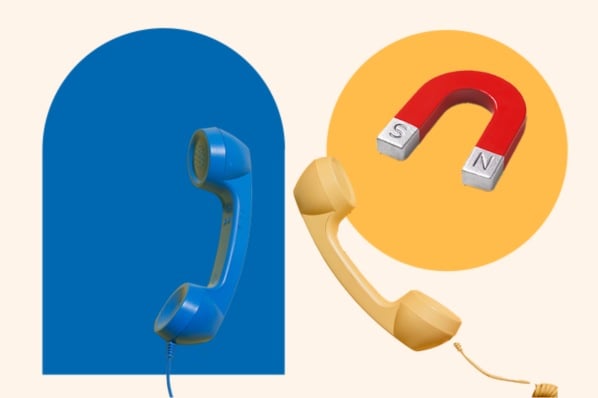

Your persistence has paid off. After sending your prospect three emails and calling them twice, they’ve finally agreed to a discovery call.
When they pick up the phone, you spend a minute building rapport, then transition into the actual call with what you think is a strong opening question.
“So, tell me about your business.”
Just like that, you’ve lost credibility, annoyed the buyer, and damaged the relationship -- and it hasn’t even been two minutes.
The Problem With This Opener
There are three main reasons salespeople should never ask buyers to tell them about the buyer’s business.
1) It’s like announcing, “I haven’t bothered to do any research before this call.”
Reps can discover a ton of information about their prospects online: Company size, product information, team structure, location, mission and values, leadership, stock price/valuation, and much more.
Because these details are so easy to find, asking a broad, surface-level question like this one implies the rep is lazy, disinterested, or both.
2) Saying “tell me about your business” is inherently selfish.
Unlike a detailed question, which would give a salesperson the chance to identify pain and find potential inefficiencies or areas of improvement, this request won’t surface information that could help the buyer. It’s solely for the rep’s benefit.
3) It’s generic.
Salespeople need to differentiate themselves to win their prospects’ trust and eventually, their business. This cliche question won’t help their cause.
What to Say Instead of “Tell Me About Your Business.”
“Tell me about your business” is out. So how should salespeople begin discovery calls? It’s important to start with a relatively general prompt: Prospects aren’t typically ready to divulge sensitive or confidential information this early in the call, and this is also your opportunity to qualify your prospect. Once reps have built rapport and earned some of their trust, they can ask more probing discovery questions.
The first question should also be open-ended. Nothing turns a conversation into an interrogation faster than a series of yes-or-no questions.
With that in mind, here are a few variations on “tell me about your business” that show the rep has done their homework.
The first option is, “What’s your current process for doing X?” Although the salesperson is still asking her to talk about his business, she’s honing in on the most relevant aspect. Consequently, the buyer won’t feel like he’s wasting his time explaining something the salesperson could’ve learned on her own.
Reps can also say something along the lines of, “I checked out your site. I noticed [pertinent detail #1] and [pertinent detail #2]. Can you give me some background on X?”
For instance, if the rep sells corporate catering packages, she might say, “I checked out your site. It looks like you have a fairly big team in L.A. -- around 100 people -- and an office roughly half that size in Denver. Can you give me some background on how many events your company hosts in each location?”
This prompt lets the buyer skip the basic facts about his business and immediately delve into his catering needs. In addition, knowing the salesperson researched his business before the call boosts her credibility.
Another option is, “Tell me about your [business area] goals.” Like the previous two options, this one is specific -- but not so specific the rep accidentally prevents her prospect from giving an answer she didn’t anticipate. As an added bonus, it puts the focus on the buyer’s goals from the get-go. In the age of “Always Be Helping,” it’s always a good idea to frame the conversation around the prospect’s agenda rather than the rep’s.
Credibility is hard to win -- and easy to lose. Salespeople who ditch this uninspired opening line will do themselves and their prospects a favor.
![21 Signs Your Buyer Is a Poor Fit [Sales Process Checklist], According to HubSpot's Former Sales Director](https://blog.hubspot.com/hubfs/Bad fit checklist.jpg)






![What a Client Intake Form Is & What It Should Look Like [Template]](https://blog.hubspot.com/hubfs/CLIENT INTAKE FORM (1).jpg)

